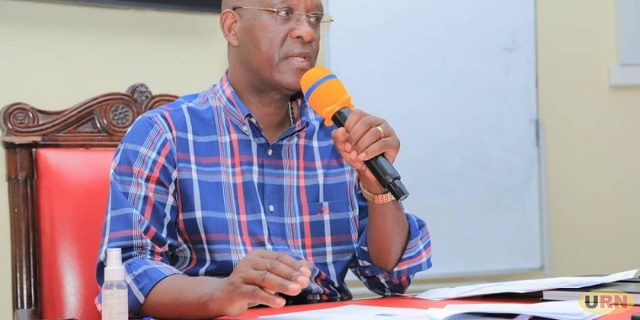
Kampala, Uganda | THE INDEPENDENT | Pius Bigirimana, the Permanent Secretary to the Judiciary outlined key priorities for the coming year, emphasizing the completion of ongoing court structures, including those for the Supreme and Court of Appeal, Soroti and Rukungiri High Courts, and the chief magistrates’ courts in Budaka and Alebtong districts.
Bigirimana highlighted that the twin towers housing the Appellate Courts are nearly complete, at 99%. Anticipating a move by January and February 2024 for the Court of Appeal and Supreme Court respectively. He expects this shift to save the government over 9 billion Shillings currently spent on rent. For the Supreme Court building, pending tasks involve assembling furniture, testing electrical, firefighting, and air conditioning systems, and overall premises cleaning.
The construction of the eight-storey twin Appellate Courts, managed by Seyani Brothers Construction Uganda Limited, costing 63.9 billion shillings funded by the Government of Uganda, will include modern courtrooms, chambers for justices, a gym, a restaurant, a sauna, a conference hall, and a parking spaces.
Additional plans unveiled involve constructing institutional houses in remote areas, procuring vehicles, motorcycles, and two boats for judicial officers in island courts, and renovating old and deteriorating buildings. During his quarterly press briefing at the High Court in Kampala, Bigirimana underscored the Judiciary’s accountability to the public through the media, aligning with the derived judicial power.
He acknowledged recruitment efforts in the past two years but noted that only 46 percent of the approved staff structure is filled, causing delays in justice delivery. Inadequate staffing across other justice service agencies, like the Office of the Director of Public Prosecutions, Uganda Police Force CID, Judicial Service Commission, and Office of the Attorney General, has hindered justice dispensation and contributed to court case backlogs.
“This has inevitably frustrated Justice Service delivery and made it difficult to banish case backlog from courts,” he said. Bigirimana emphasized plans to automate more courts, develop a judgment writing tool for judges, and install video recording equipment in various courts to minimize the costs and risks associated with transporting prisoners.
He highlighted challenges in the public’s understanding of bail refund procedures, leading to unclaimed bail funds worth billions of Shillings. During the 2022/2023 financial year, the Judiciary collected 6.189 billion shillings in bail and refunded 1.8 billion Shillings.
Accompanied by officials from the Communication and Public Relations Registry, including Judiciary Spokesperson James Ereemye Jumire Mawanda and the Principal Engineer, Bigirimana revealed ongoing efforts to re-establish magisterial areas and designate more High Court Circuits to ensure accessible justice. The Judiciary also plans to operationalize Regional Courts of Appeal, beginning with Mbarara and Gulu in 2024.
*******
URN
 The Independent Uganda: You get the Truth we Pay the Price
The Independent Uganda: You get the Truth we Pay the Price





